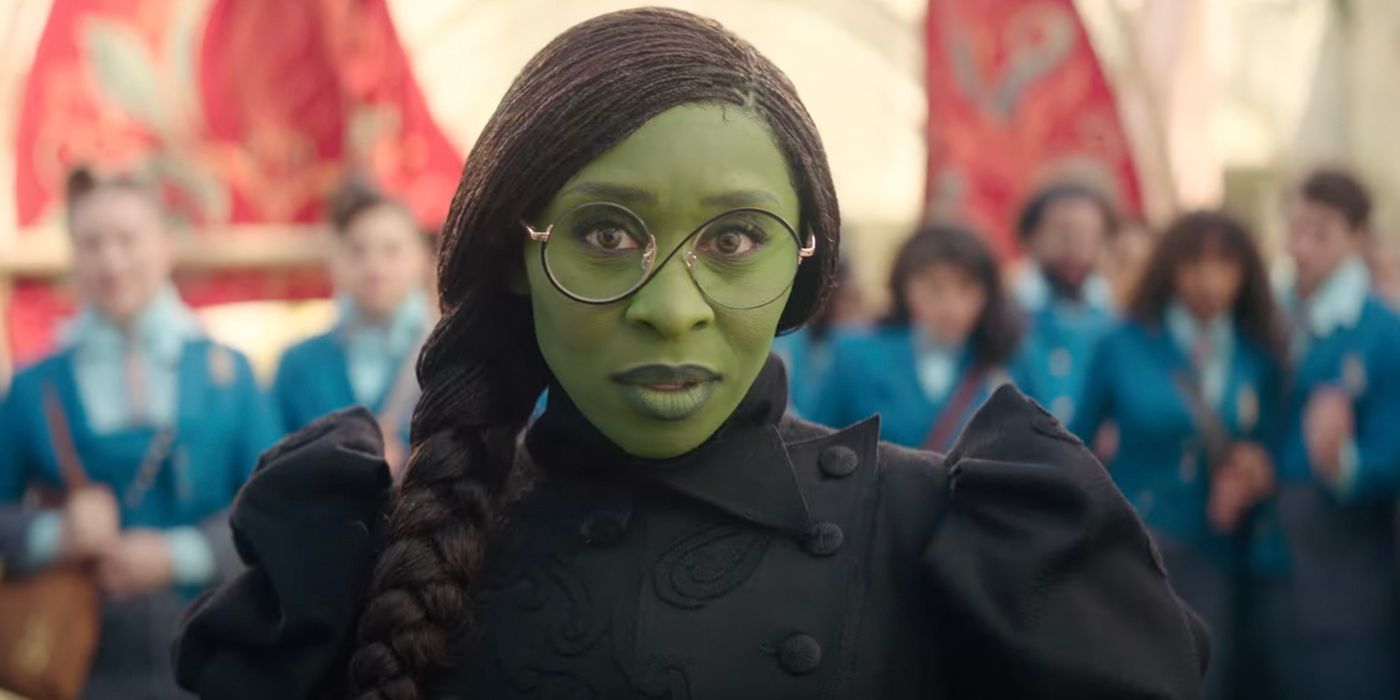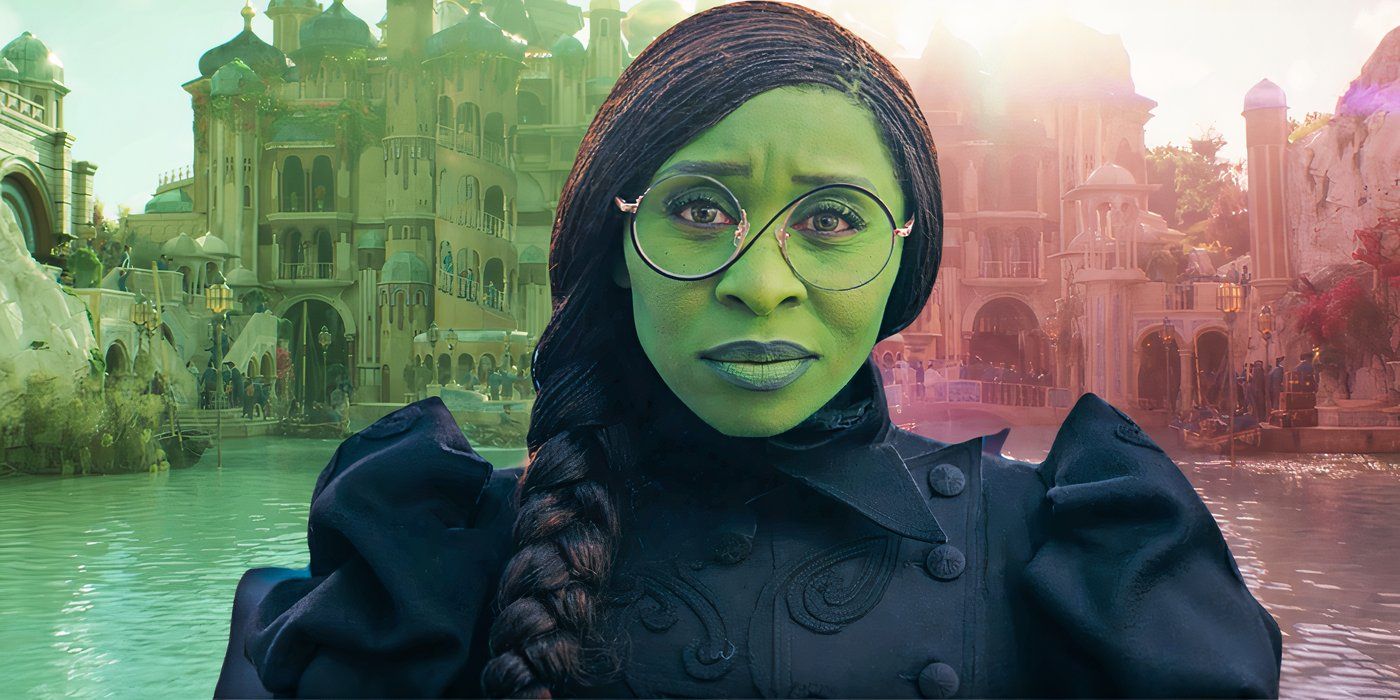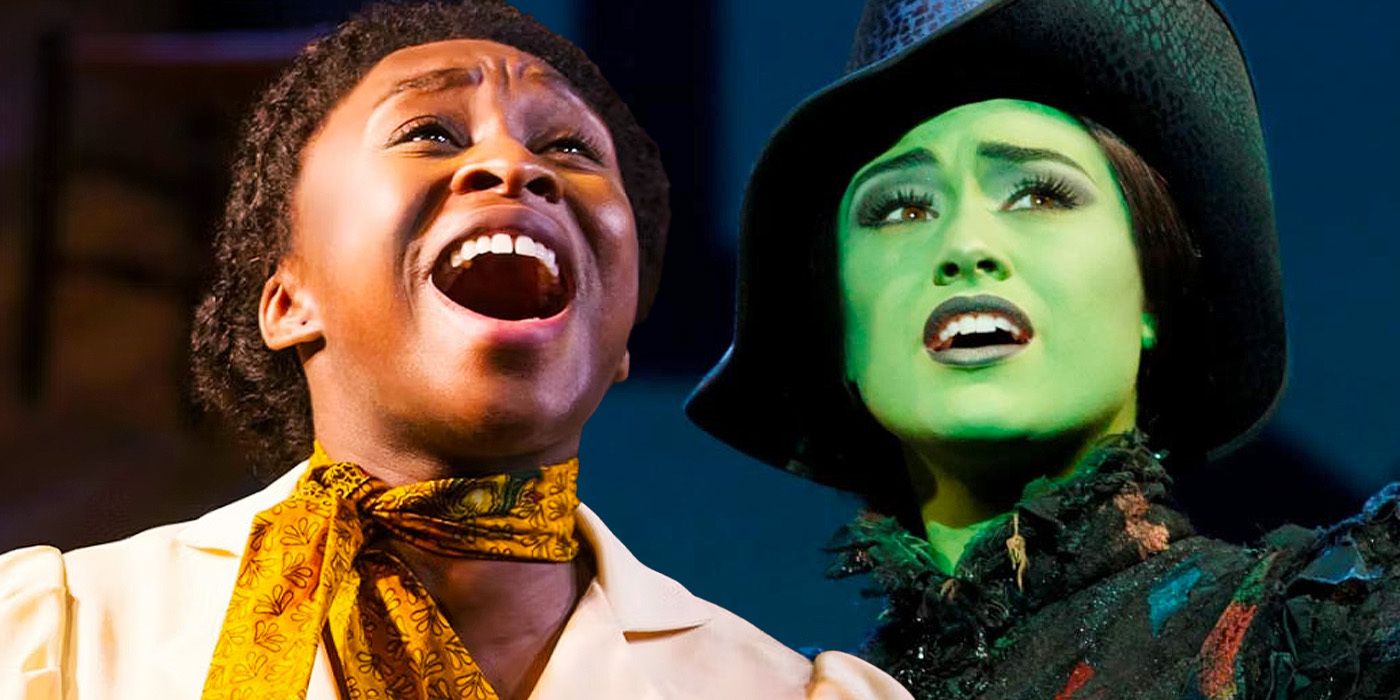Cynthia Erivo's Wicked: A New Era For Elphaba & Oz
Can a film adaptation of a beloved musical truly capture the magic of its source material, while also forging its own path? In the case of "Wicked: Part One," starring Cynthia Erivo, the answer, at least for a significant portion, is a resounding yes, yet a single misstep threatens to cast a shadow over the entire endeavor. The world of Oz, with all its expected and unexpected wonders, has been revisited, and the results are as spellbinding as they are potentially divisive.
The film, a visual feast directed by Jon M. Chu, arrives on the scene some 21 years after the Broadway premiere of the musical "Wicked," itself an adaptation of Gregory Maguire's novel "Wicked: The Life and Times of the Wicked Witch of the West." This cinematic undertaking, broken into two parts, promises a deep dive into the origin story of Elphaba, the misunderstood young woman destined to become the Wicked Witch of the West, played with captivating intensity by Cynthia Erivo. The production, a "behemoth project," as some have described it, boasts a scale that is immediately evident, with Chu's artistry on full display.
| Category | Details |
|---|---|
| Full Name | Cynthia Erivo |
| Date of Birth | January 8, 1987 |
| Place of Birth | Stockwell, London, England |
| Occupation | Actress, Singer, Songwriter |
| Known For | Elphaba Thropp in "Wicked," Harriet Tubman in "Harriet," and various stage performances. |
| Awards | Grammy Award, Emmy Award, Tony Award |
| Key Roles | Elphaba Thropp in "Wicked (film)," Celie in "The Color Purple" (Broadway) |
| Education | Royal Academy of Dramatic Art (RADA) |
| Notable Songs | "Stand Up" from "Harriet" |
| Associated Projects | "Wicked: Part Two" (upcoming), "The Color Purple" (movie) |
| Reference Website | Wikipedia |
The story begins as Elphaba, born with green skin, navigates the complexities of Shiz University, where she encounters Galinda, later known as Glinda the Good, played by Ariana Grande. Their initial rivalry blossoms into a unique friendship, a core element of the "Wicked" narrative, which explores themes of prejudice, power, and self-discovery. The film adaptation, penned by Winnie Holzman and Dana Fox, sticks closely to act one of the stage musical, creating a narrative that should be familiar to many but also accessible to newcomers to the story.
The full-length trailer, released on May 16, generated significant buzz, particularly for Erivo's performance. Her rendition of Elphaba has been widely praised. Erivo's choices, particularly in the portrayal of such an iconic character, have already begun to redefine the role, bringing fresh life to Elphaba's journey. Comparisons to Idina Menzel's Broadway portrayal of Elphaba are inevitable, with many already suggesting that Erivo is edging out the previous performance, bringing new depth to one of Broadway's most cherished characters.
Jeff Goldblum, cast as the Wizard, has been teasing exciting developments in "Wicked: For Good," the second part, further heightening anticipation. This installment promises to expand on the story, following Elphaba on the run after she has become The Wicked Witch of the West, with Glinda (Ariana Grande) involved in a story of betrayal and power, making them both iconic characters in the world of Oz.
Before embarking on the "Wicked" project, director Jon M. Chu's filmography included "In the Heights," another musical adaptation that received favorable reviews. This earlier experience with the genre may have prepared him for the complexities of the "Wicked" adaptation. The cinematic scope is considerable, with an emphasis on grand visuals and elaborate musical sequences.
The narrative focuses on Elphaba's discovery of the Wizard's true nature and her embrace of her own power. The film explores the foundations of her reputation as "wicked," presenting a layered character arc that goes far beyond the surface image of the villain. "Wicked" gives insight into the circumstances that led to Elphaba's fate and offers a new perspective on this iconic antagonist from "The Wizard of Oz."
The film's success hinges on more than just visual flair; it rests on the emotional connection audiences have with the characters and the themes of acceptance and self-acceptance. "Wicked: Part One" aims to deliver both visually stunning and emotionally resonant experience for the audience.
Journalist Tracy E. Gilchrist, during interviews with both Erivo and Grande, spoke of the impact of this adaptation, suggesting that the film will be memorable. "Wicked" is a chance to delve into the origin story of one of the most recognizable figures in cinema, examining her relationships, her internal struggles, and the reasons behind her eventual status as a "wicked" witch.
The narrative's structure and the actors' performances will determine how well the film connects with those familiar with the musical as well as those new to the story. The film has the potential to redefine what is expected from movie musicals, in the same way that the musical production did so in the theatrical world. "Wicked" sets out to captivate audiences with its mix of visual splendor, emotional depth, and the sheer joy of musical storytelling.
In the film, Elphaba is not just a character. She is a symbol of individuality, a person who is fighting for what is right, and a person who is trying to understand her own place in the world. Erivos role as Elphaba in "Wicked" becomes her moment, a reflection of a performer who brings dedication, talent, and passion to create one of the most memorable characters in the history of musical theatre.
The film adaptation, divided into two parts, signals the ambition and scope of the project. The second installment will continue the saga, with Elphaba on the run and the Wizard and Glinda entangled in the story's ongoing conflict. These narratives provide scope to delve deeper into the rich storytelling possibilities of the "Wicked" world.
The films casting choices have sparked considerable interest. The leads, Erivo and Grande, bring unique qualities to their respective roles. Erivos experience in musical theatre and her Emmy and Grammy awards enhance her role as Elphaba, while Grandes singing and performance talents bring Glinda to life. The casting choices reflect the anticipation for the film's musical performances and the audience's wish for the characters to have more depth and complexity.
The film, therefore, promises to be a cinematic event and a faithful adaptation of the musical. It builds on the enduring popularity of the source material and tries to bring a fresh perspective to the magical world of Oz. It is, first and foremost, a story about friendship, about discovering the truth, and about owning the power within. Whether this ambition will translate into an unforgettable film experience is the question that many people are asking as they prepare to return to Oz.


